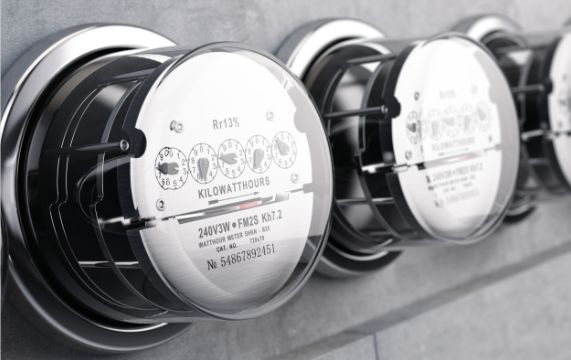SCC News

Financial
JAN 11, 2024
RICHMOND – The State Corporation Commission’s Health Benefit Exchange reminds Virginians that January 16, 2024, is the deadline to apply for, re-enroll in, or change health insurance for 2024 on Virginia’s Insurance Marketplace. Virginians who enroll by 11:59 p.m. on January 16 will have coverage that starts February 1, 2024. Following the end of Open Enrollment on January 16, Virginians who experience a Qualifying Life Event (such as having a baby or losing health insurance coverage) during the year may be eligible to enroll during a Special Enrollment Period that takes place from January 17 to October 31.
Virginia’s Insurance Marketplace – which replaced HealthCare.gov for all Virginians – launched on November 1, 2023, and provides a variety of resources for residents to find affordable health care coverage. Since its launch at the beginning of this Open Enrollment Period, hundreds of thousands of Virginians have accessed the Marketplace to find coverage that meets their needs.
“We are extremely pleased with the number of Virginians who have used this new resource to find health plans that meet their unique needs,” said Keven Patchett, director of the Health Benefit Exchange. “We encourage anyone who hasn’t signed up for health insurance to do so before open enrollment ends to ensure that they don’t experience a lapse in coverage.”
Individual and family plans are available to eligible Virginians, including those who are unemployed, are self-employed, or have jobs that may not provide affordable insurance options. Virginians who no longer qualify for Medicaid because of changes in their income also may qualify for savings on the Marketplace.
All health insurance plans on the Marketplace include free preventive services and guarantee coverage for preexisting conditions. Additionally, every health plan offered on the Marketplace covers the 10 essential health benefits required by law, which include doctor visits, hospitalization, prescription services and more. In Virginia, consumers have an array of options to find a plan that best fits their needs.
Virginians can apply on the Marketplace for financial assistance to help lower their monthly insurance costs. Nearly nine out of 10 Marketplace customers qualify for financial assistance.
Virginians can visit Marketplace.Virginia.gov to browse and compare health insurance plans. To apply for a plan on the Marketplace, Virginians need the following materials for each adult who will be covered:
- Photo ID.
- Social Security number.
- Most recent tax return.
- Pay stubs from the last four weeks.
- Immigration documents, if applicable.
For additional help — either online or in person — Virginians can access the following resources:
- The Marketplace Help Center can connect Virginians to someone either in person or on the phone. Free translation services are also available.
- The FAQ page answers some of the most common questions about the Marketplace.
###
Contact: Andy Farmer, 804-371-9141

Utilities
JAN 02, 2024
RICHMOND –The State Corporation Commission (SCC) will hold a hearing in Loudoun County on January 9 to receive public testimony on a request by the owners of the Dulles Greenway to increase the maximum level of tolls over a five-year period.
The public hearing is scheduled from 6 p.m.-10 p.m. at Freedom-South Riding High School auditorium, 25450 Riding Center Drive, in Chantilly, Virginia. Persons intending to testify as public witness should arrive at least 15 minutes prior to the meeting and register with the Commission’s bailiff. Witness statements will be limited to five minutes apiece.
The hearing is part of a case before the SCC. Toll Roads Investors Partnership II has filed a request to increase its maximum tolls for most drivers to $8.10 during peak hours, up from the current $5.80, and $6.40 during off-peak hours, up from $5.25. The company also has asked that the Commission authorize a streamlined process to consider and approve future increases.
For those who prefer, there is also an opportunity to provide comments in writing on the toll request. Written comments may be submitted through the SCC’s website by January 24, 2024, at scc.virginia.gov/casecomments/Submit-Public-Comments. Simply go to the SCC website, select “Cases” and then “Cases Currently Accepting Public Comments,” and scroll down to case number PUR-2023-00089. Then select SUBMIT COMMENTS.
Comments can also be submitted by U.S. mail to the Clerk of the State Corporation Commission, c/o Document Control Center, P.O. Box 2118, Richmond, Virginia 23218-2118. All comments must refer to case number PUR-2023-00089.
###
Contact: Greg Weatherford, 804-371-9141
Case Number PUR-2023-00089 – Application of Toll Road Investors Partnership II for authorization for an increase in the maximum level of tolls on Dulles Greenway

Financial
DEC 13, 2023
RICHMOND – Virginia’s Insurance Marketplace reminds Virginians that December 15 is the last day to apply for health care coverage that starts on January 1, 2024. Any health care coverage secured after December 15 and before Open Enrollment ends on January 15 will begin on February 1, 2024.
After the Open Enrollment period ends January 15, Virginians experiencing a Qualifying Life Event (such as having a baby or losing health insurance coverage) may be eligible to enroll during a Special Enrollment Period.
Virginia’s Insurance Marketplace – which replaced HealthCare.gov for all Virginians – launched on November 1, 2023, and provides a wealth of resources for residents to find affordable health care coverage. Hundreds of thousands of Virginians have accessed the Marketplace this Open Enrollment Period to find coverage that meets their needs.
“The Marketplace is a resource that was created by Virginia for Virginians, and it’s great place to compare the costs of different plans or to see whether your doctor is covered under a certain plan,” said Keven Patchett, Director of the Virginia Health Benefit Exchange. “We also know that health care coverage can sometimes be complex. For those moments, our consumer assistance center stands ready to answer questions and to assist consumers through the shopping experience.”
Marketplace plans provide quality, comprehensive coverage. They include free preventative services and guarantee coverage for pre-existing conditions. Additionally, every health plan offered on the Marketplace covers the 10 essential health benefits required by law, which include doctor visits, hospitalization, prescription services and more. In Virginia, consumers have a wide array of options to find a plan that best fits their needs.
The Marketplace is the only place where Virginians can apply for financial assistance to help lower their monthly insurance costs. Nearly 9 out of 10 Marketplace customers qualify for financial assistance.
Virginians who no longer qualify for Medicaid because of changes in their income may also qualify for considerable savings on the Marketplace.
To get started, Virginians can visit Marketplace.Virginia.gov to browse and compare health insurance plans. For additional help — either online or in person — Virginians can access the following resources:
- The Marketplace Help Center can connect Virginians to someone either in person or on the phone. Free translation services are also available.
- The FAQ page answers some of the most common questions about the Marketplace.
###
Contact: Andy Farmer, 804-371-9141
About Virginia’s Insurance Marketplace:
Virginia’s Insurance Marketplace is Virginia’s new state-affiliated health insurance marketplace created to better support the needs of customers purchasing health coverage. For more information, visit marketplace.virginia.gov or follow us on social media at www.facebook.com/VAInsuranceMarketplace and www.instagram.com/vainsurancemarketplace.

Utilities
NOV 21, 2023
RICHMOND – The State Corporation Commission (SCC) will hold a hearing in Loudoun County in January to receive public testimony on a request by the owners of the Dulles Greenway to increase the maximum level of tolls over a five-year period.
TRIP II has filed a request with the SCC to increase its maximum tolls for most drivers to $8.10 during peak hours, up from the current $5.80, and $6.40 during off-peak hours, up from $5.25. The company also has asked that the Commission authorize a streamlined process to consider and approve future increases.
A public hearing is scheduled in Chantilly, Virginia, on January 9, 2024, from 6 p.m.-10 p.m. at Freedom-South Riding High School auditorium, 25450 Riding Center Drive. Persons intending to testify as a public witness should arrive at least 15 minutes prior to the meeting and register with the Commission’s bailiff. Witness statements will be limited to five minutes apiece.
The hearing will resume in Richmond on January 30, 2024, at 10 a.m. in the SCC’s courtroom on the second floor of the Tyler Building, 1300 East Main Street. Public witnesses intending to provide testimony at the January 30 hearing must pre-register with the SCC by 5 p.m. on January 24, 2024. Registered witnesses will submit their live testimony by telephone. The January 30 hearing will be webcast at: scc.virginia.gov/pages/Webcasting.
For those who prefer, there is also an opportunity to provide comments in writing on the toll request. Written comments may be submitted through the SCC’s website by January 10, 2024, at scc.virginia.gov/casecomments/Submit-Public-Comments. Simply go to the SCC website, select “Cases” and then “Submit Public Comments,” and scroll down to case number PUR-2023-00089. Then select SUBMIT COMMENTS.
Comments can also be submitted by U.S. mail to the Clerk of the State Corporation Commission, c/o Document Control Center, P.O. Box 2118, Richmond, Virginia 23218-2118. All comments must refer to case number PUR-2023-00089.
###
Contact: Greg Weatherford, 804-371-9141
Case Number PUR-2023-00089 – Application of Toll Road Investors Partnership II for authorization for an increase in the maximum level of tolls on Dulles Greenway

Financial
NOV 17, 2023
RICHMOND – The holiday season is here, and the State Corporation Commission's (SCC) Bureau of Insurance (Bureau) wants Virginians to have a happy and safe holiday by protecting themselves financially with insurance to combat holiday mishaps.
The Bureau reminds Virginians that their holiday to-do list should include checking with their insurance agent or company to ensure they have the insurance coverage they need should an injury, illness, theft or mishap occur.
“Whether you are at home or on the road, don’t let a lack of insurance coverage dampen your holidays financially,” said Virginia Insurance Commissioner Scott White. “Review your insurance coverage now and update it as needed. Know what is – and is not – covered and understand deductibles and coverage limits.”
While reviewing your insurance coverage, taking additional steps to keep your home, vehicle and belongings secure during this time of year is important. Take the time to know how much your auto and homeowners insurance will cover if someone steals gifts, decorations or other items from your vehicle, home or yard. Understand what type of insurance you need if a special holiday meal or decorations go up in flames, an undercooked turkey sends guests to the hospital, or frozen pipes burst causing water damage to your home.
Remember that distracted drivers and the potential for severe winter weather can make holiday travel a challenge. Keep your auto insurance company’s contact information and a copy of your insurance card with you when you drive. Review liability limits to ensure they’re adequate to protect against injury or damage if you are involved in an accident during the hectic holiday rush.
Familiarize yourself with what your medical insurance will cover if you need treatment at an urgent-care facility or hospital while you are out-of-state or traveling abroad. Make sure your health insurance information is up-to-date and always have copies of your insurance card with you when traveling.
The end of the year is a great time to create – or update – your home inventory. An inventory can help you determine if your homeowners or renters policy provides enough coverage for your belongings – as well as facilitate the claims process if you must file an insurance claim. An inventory also will help you identify high-cost items that may need separate insurance coverage, such as jewelry, art or electronics. The National Association of Insurance Commissioners' (NAIC) free smartphone app — NAIC Home Inventory — makes creating a home inventory easy.
Finally, check that you have insurance coverage for seasonal activities that you may enjoy, such as skiing, snowboarding and snowmobiling.
For information about a variety of insurance-related topics, contact the SCC’s Bureau of Insurance in Richmond at 804-371-9741 or toll-free at 1-877-310-6560 or visit its website at scc.virginia.gov/pages/Insurance. Additional information also may be found on the NAIC website at naic.org.
###
Contact: Jordan Bondurant, 804-371-9141

Utilities
NOV 03, 2023
RICHMOND – The State Corporation Commission (SCC) has approved Dominion Energy Virginia’s request to securitize approximately $1.3 billion of unrecovered fuel costs.
The unrecovered fuel costs accrued from higher-than-expected fuel and purchased power costs between July 1, 2020, and June 30, 2023. The proposal is expected to allow customers to pay off these unrecovered costs over approximately 7.25 years rather than over as little as 19 months.
Dominion estimated that, as approved, customers would pay approximately $3.10 per month over 7.25 years rather than up to $14.72 per month under the traditional methodology. Final terms will not be known until the bonds are marketed and priced and are subject to change.
The request was approved under a new statutory financing vehicle created by the 2023 General Assembly. The new statute allows Dominion, with Commission approval, to use a special-purpose entity to issue securitized bonds to finance certain unrecovered fuel costs. The proceeds from the bond issuance will be used to satisfy the unrecovered balance. The bondholders are paid through customer charges on the electric bill over the term of the securitization period.
The Commission required that the bond issuance, once final terms are known, must provide both customer bill reductions and a net present value to customers compared to other recovery options.
The Commission previously permitted Dominion to suspend collection of the unrecovered fuel costs on an interim basis beginning July 1, 2023, subject to the Commission’s consideration of the securitization request. Customer charges for securitization are expected to begin in Spring 2024.
###
Contact: Greg Weatherford, 804-371-9141
Case Number PUR-2023-00112 – Petition of Dominion Energy Virginia for a financing order authorizing the issuance of deferred fuel cost bonds

Financial
NOV 01, 2023
RICHMOND – The State Corporation Commission (SCC) is announcing the November 1 launch of Virginia’s Insurance Marketplace, which replaces HealthCare.gov as the Commonwealth’s official health benefit exchange. Virginia residents can enroll now in health insurance for 2024 on Virginia’s Insurance Marketplace during the Open Enrollment Period, which ends January 15, 2024.
Virginia’s Insurance Marketplace was created by Virginia, for Virginians. The Health Benefit Exchange, a division of the SCC, operates Virginia’s Insurance Marketplace.
“We work every day to better understand the unique needs of individuals and families in our state, and we have created a marketplace that connects them to high-quality, affordable health care coverage they can depend on,” said Keven Patchett, director of Virginia’s Insurance Marketplace.
The goal of Virginia’s Insurance Marketplace is to increase access to affordable and reliable health coverage for Virginians.
“We have had the privilege of working closely with state agencies, health insurance carriers, insurance agents, navigators and our technology vendor, GetInsured, to make this transition a reality for Virginia,” said Patchett. “We look forward to continuing these relationships as we work together to improve access to coverage for Virginians, reduce the number of uninsured, and support the continuity of coverage for those experiencing coverage transitions.”
“Transitioning to a state-based exchange is no small feat,” said Chini Krishnan, CEO of GetInsured. “Transitioning from the federal marketplace will put the Commonwealth in a strong position for the upcoming Open Enrollment Period and beyond, allowing the state more flexibility to provide the best access to affordable coverage for Virginians.
Individual and family plans are available to eligible Virginians, including those who are unemployed, are self-employed, or have jobs that don’t provide affordable insurance options. Residents who have lost Medicaid or FAMIS coverage are also encouraged to shop for affordable insurance on the Marketplace.
The Marketplace is the only place where Virginians can apply for financial assistance to help lower their monthly insurance costs. Nearly 9 out of 10 customers qualify for financial assistance.
Every health plan offered on the Marketplace covers the 10 essential health benefits required by law, which include doctor visits, hospitalization, prescription services and more.
To get started, Virginians can visit Marketplace.Virginia.gov to browse and compare health insurance plans. For additional help — either online or in person — Virginians can access the following resources:
- The Marketplace Help Center can connect Virginians to someone either in person or on the phone. Free translation services are also available.
- The FAQ page answers some of the most common questions about the Marketplace.
For Virginians to receive coverage during 2024 through the Marketplace, they must enroll in a health plan at Marketplace.Virginia.gov by January 15, 2024. After January 15, Virginians experiencing a Qualifying Life Event (such as having a baby or losing health insurance coverage) may be eligible to enroll during a Special Enrollment Period.
###
Contact: Andy Farmer, 804-371-9141

Financial
OCT 17, 2023
RICHMOND – The autumn season brings shorter days and falling leaves. It also brings an increase in vehicle collisions with deer.
An increase in vehicle-deer crashes during the fall is attributed to deer mating and migration that typically takes place this time of year. In fact, next month (November) is the peak month for insurance claims related to vehicle collisions with deer. The State Corporation Commission’s (SCC’s) Bureau of Insurance offers Virginia drivers a reminder to remain alert for deer when driving on roadways.
“A deer in the roadway poses a threat to even the most careful driver,” said Virginia Insurance Commissioner Scott White. “As fall arrives, contact your insurance agent or company to find out if your automobile policy provides coverage for claims involving a crash with deer or other wildlife.”
Insurance policies with liability-only coverage may not cover damage to your auto from a deer crash. Vehicle collisions with deer typically fall under an optional coverage called “other-than-collision” (or “comprehensive”) coverage. In addition to deer crashes, other-than-collision coverage often covers other types of damage to your vehicle, such as damage resulting from theft, wind, hail, flood, fire or vandalism.
Lowering your travel speed and staying distraction-free may help you avoid a crash with deer. If a deer runs out in the road, drivers should stay in their lane and brake as carefully as possible. While startling, striking a deer is often safer for the driver and vehicle occupants than swerving sharply and putting surrounding vehicles and their occupants at risk.
If a collision with a deer happens while on the road, notify law enforcement and your insurance company as soon as possible. When safe to do so, take photos of the scene of the crash, as well as damage to the vehicle if you plan to file an insurance claim. If you see leaking fluid, tire damage, broken lights or other damage, call a tow truck.
The Bureau of Insurance is here to assist Virginians with their questions regarding auto and many other types of insurance. For more information, call the Bureau toll-free at 1-877-310-6560 or in Richmond at 804-371-9741 or visit its website at scc.virginia.gov/pages/Insurance.
###
Contact: Jordan Bondurant, 804-371-9141

Financial
OCT 17, 2023
RICHMOND – The State Corporation Commission’s (SCC) Bureau of Financial Institutions (Bureau) is among money transmission regulators from 42 states, the District of Columbia and Puerto Rico to approve a settlement with licensed money transmitter ACI Payments Inc. and its parent company, ACI Worldwide Corp. (collectively, “ACI”) over roughly $2.3 billion in improperly processed and unauthorized electronic mortgage payments for more than 478,000 customers in April 2021.
Under the terms of the recent multistate settlement, each participating state will receive an equal portion of the more than $9.5 million civil penalty, or approximately $216,000 each. In addition, Nebraska-based ACI was ordered to pay $490,000 to reimburse 10 states for administrative costs related to the investigation. As part of the settlement and among other things, ACI also has agreed to implement changes to improve privacy and data security as well as introduce other safeguards to help protect consumers.
A copy of the SCC order regarding the settlement is available online via the SCC’s case information page at scc.virginia.gov/DocketSearch#/caseDetails/144515.
###
Contact: Katha Treanor,804-371-9141
Case Number BFI-2023-00126

Utilities
OCT 05, 2023
RICHMOND — The State Corporation Commission (SCC) is offering time for members of the public to provide comments on an application by Appalachian Power Company to decrease its fuel factor for usage on and after November 1, 2023.
Appalachian Power’s application requests approval to recover the company's estimated Virginia jurisdictional fuel expenses of approximately $433,839,311 for the November 1, 2023, through October 31, 2024, fuel year, and its projected October 31, 2023, unrecovered fuel deferral balance of $273,125,395, subject to a mitigation proposal which would spread recovery of the unrecovered fuel deferral balance over two years.
For a residential customer using 1,000 kilowatt-hours per month, the average weighted monthly bill would decrease by $1.80, from $161.77 to $159.97, under the company’s proposal. The Commission has permitted the company to place the proposal into effect on an interim basis, subject to further modification, effective November 1, 2023.
The SCC has scheduled a public witness session to begin at 10 a.m. on January 17, 2024. Public witnesses intending to provide oral testimony must pre-register with the SCC by 5 p.m. on January 10, 2024. The hearing will be webcast at: scc.virginia.gov/pages/Webcasting.
Public witnesses wishing to provide oral testimony may preregister in one of three ways:
- Completing a public witness form for case number PUR-2023-00156 on the SCC’s website at: scc.virginia.gov/pages/Webcasting.
- Emailing the same form (PDF version on the same website as above) to SCCInfo@scc.virginia.gov.
- Calling the SCC at 804-371-9141 during normal business hours (8:15 a.m. – 5 p.m.) and providing your name and the phone number you wish the Commission to call to reach you during the hearing.
A public evidentiary hearing will follow the public witness hearing at 10 a.m. on January 17, 2024, in the SCC’s second-floor courtroom at 1300 East Main Street in Richmond to receive testimony and evidence from the company, any respondents and the SCC staff.
For those who prefer, there is also an opportunity to provide comments in writing on the Appalachian Power application. Written comments may be submitted through the SCC’s website by January 10, 2024, at scc.virginia.gov/casecomments/Submit-Public-Comments. Simply go to the SCC website, select "Cases" and then "Submit Public Comments," and scroll down to case number PUR-2023-00156. Then click SUBMIT COMMENTS.
Comments can also be submitted by U.S. mail to the Clerk of the State Corporation Commission, c/o Document Control Center, P.O. Box 2118, Richmond, Virginia 23218-2118. All comments must refer to case number PUR-2023-00156.
###
Contact: Greg Weatherford, 804-371-9141
Case Number PUR-2023-00156 – Appalachian Power Company application to decrease its fuel factor